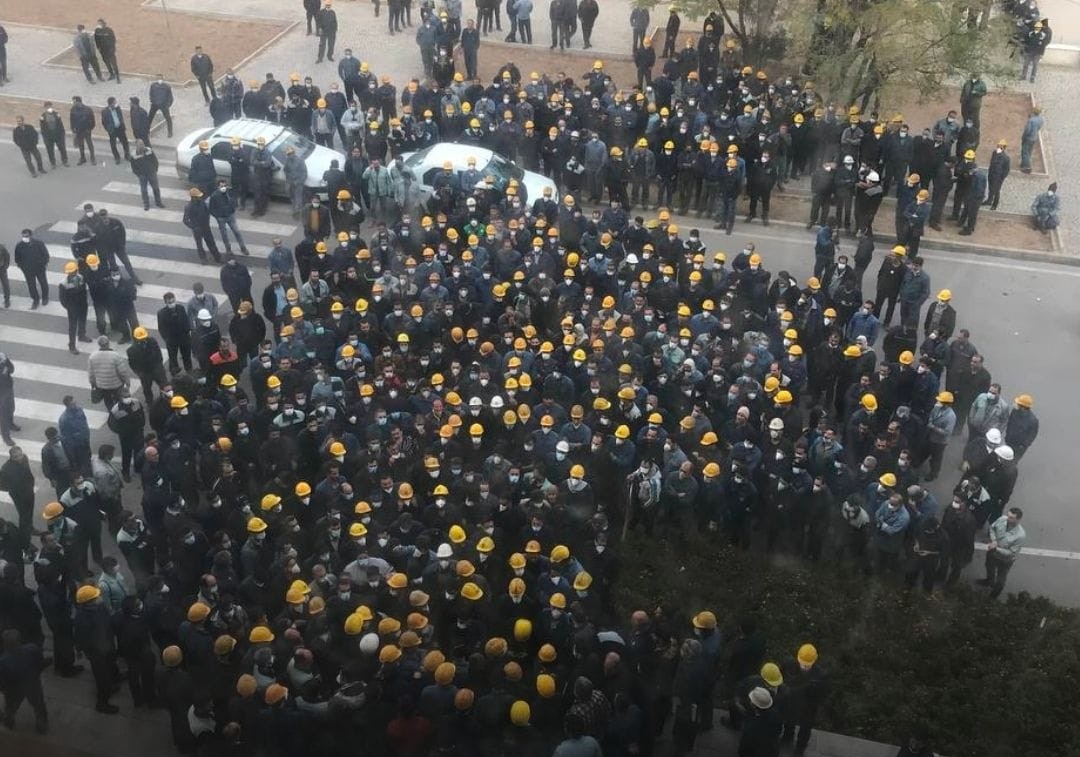After the murder of Mahsa (Zhina) Amini by the Moral Police in Tehran, Iran is now entering the third month of nationwide protests. Protests that have been accompanied by widespread strikes and so far more than 50 cities in Iran have experienced it.
The strikes were started by shopowners and small businesses in protest of the violence against the protesters. Due to the lack of freedom of the media and the lack of free activity of unions and syndicates, exact statistics cannot be provided, but reports and footage from different cities indicate that general strikes are widespread.
Different cities of Kurdistan province were among the first cities that started strikes with the call of opposition parties. The Cooperation Council of Iranian Kurdistan Parties, which consists of Social Democratic and Democratic parties, along with the Communist Party of Iran, called for a strike for the first time on September 19 in protest against the murder of Mahsa Amini. This method of civil protests quickly spread to other parts of Iran. General strikes are a tradition of civil struggles in Iran that dates back to the years before 1979.
Foad Keykhosravi, a labor activist and member of the board of directors of the “Free Union of Iranian Workers”, says “When cities and shops go on strike by this method, has a great psychological effect for the formation of street protests and it is a kind of call for resistance. When police brutality is severe, many groups avoid taking to the streets, but this method is a safe and non-violent opportunity to participate.”
Currently, due to the military presence of the IRGC in various cities of Kurdistan, widespread calls for nationwide strikes have been announced on Thursday, November 24.
Until now, the Iranian Teachers’ Coordination Council has called for several strike and asked students and teachers not to attend classes in protest of the killing and arrest of several students. Security forces have killed 61 under-18s in Iran so far. This council had also strongly protested against the military use of educational spaces by the police.
With the increase in police brutality in universities and the suspension of several students from the education programs, daily protests and strikes by professors and students have also increased in many universities. With the announcement of the Ministry of Science of Iran (which has the authority to manage the universities) to hold university classes online, various student associations protested it and demanded to boycott the classes until the release of the detained students. So far, 549 students have been arrested and their legal status is unknown. Currently, students and professors in 16 universities are on strike.
In Kurdistan, during the past days, the students of the public university along with their professors demanded to stop the violence and to deal with the perpetrators of the military attack on the people.
The new round of strikes in industrial and service centers is starting at the same time as the beginning of the women, life, freedom movement, the government has used all the means of intimidation and repression to prevent the formation of a strike. Workers are threatened with dismissal. Summoning and arresting known workers by the security agencies and obtaining a commitment from the workers of some companies are other ways to prevent the formation of a strike.
Foad Keykhosravi tells that “If labor protests spread and reach key industries, it will paralyze the economic power of the government.”
During the past days, parts of the workers of the oil company in the south of Iran, as well as several factories and government and private companies in Tehran, Mashhad and Qazvin, are on strike.








